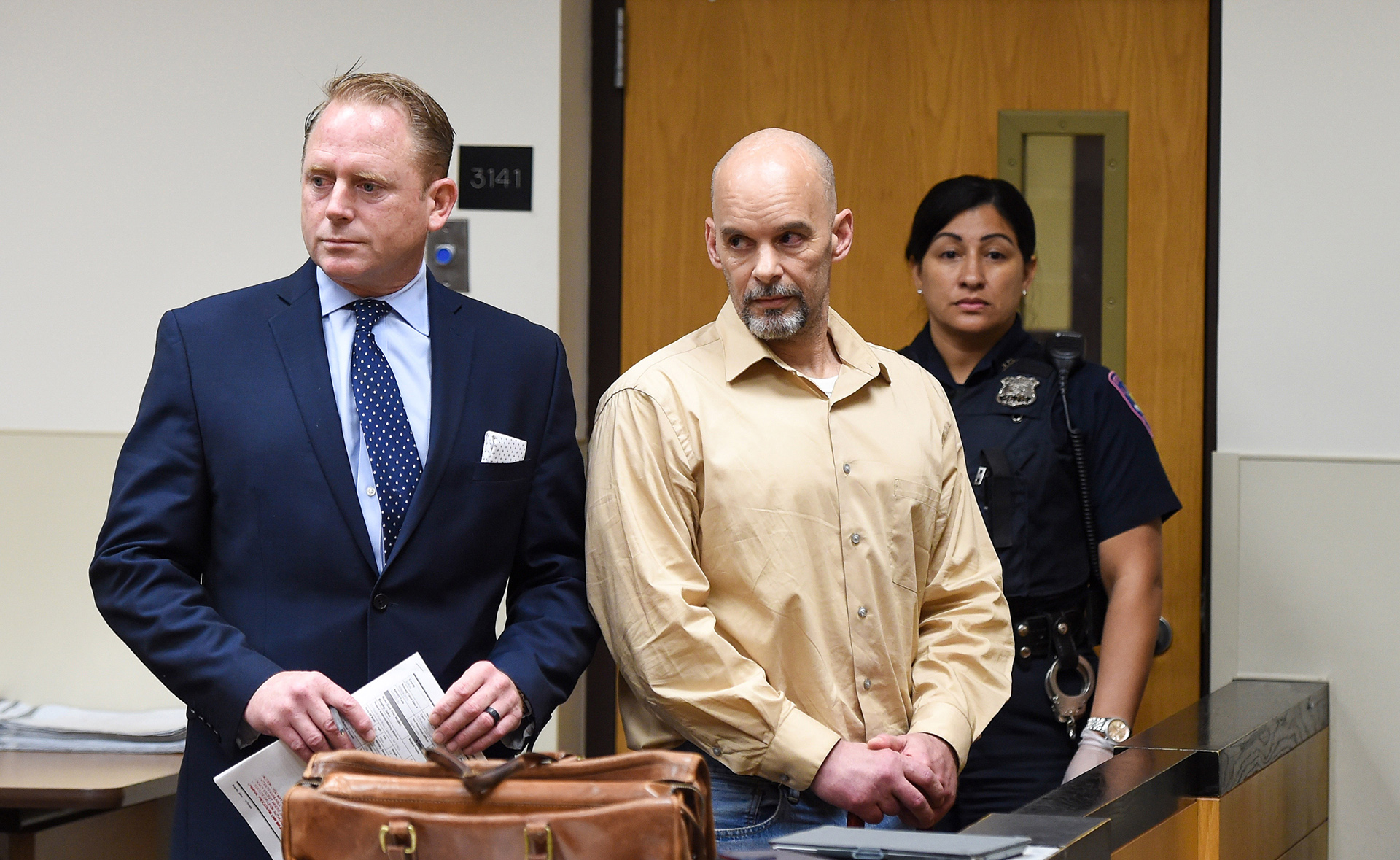North Fork Heroin/Fentanyl Dealer Sentenced

The Greenport man who sold heroin laced with fentanyl to a Riverhead resident who overdosed and died in August 2018 was sentenced to four to six years in state prison on the charge of manslaughter October 3, as well as a concurrent four years on a felony narcotics sale charge.
Before New York state Supreme Court Justice Anthony Senft pronounced the sentence on John Brophy, 50, inside his Riverside courtroom, he allowed a relative of the victim, Lawrence Yaccarino, to address the court.
“You are a demon,” Vincent Martinelli said looking into the eyes of Brophy, who then looked down.
District Attorney Tim Sini said at a press conference that followed that the sentence should act as a warning to drug dealers across Suffolk County.
“If you sell drugs in our community, and you cause death, we will charge you with homicide,” he said. “Such drug dealers must be dealt with as murderers.”
Sini said that Brophy, who lived in Riverhead for some time with family members and sold heroin out of an auto repair shop in the town, “was put on notice a number of different times that his product was killing people.” Sini called on the state to pass tougher drug laws including a “death by dealer statute, so that we can hold the dealers more accountable for the death and destruction they are causing in our community.”
“I wasn’t doing this to make money,” Brophy told the court before sentence was pronounced. “I was doing this to support my habit.”
In his post sentencing press conference, Sini did not dispel the doubt that lingered that the drugs Brophy sold to Yaccarino were the actual cause of his death. Last month, a codefendant of Brophy’s, LaShawn Lawrence, was found not guilty of the same charge Brophy had pleaded guilty to in August. The bench trial was also before Senft. The court justice, himself a former prosecuting attorney in the Suffolk County DA’s office, as well as having served as a federal prosecutor, an officer in the U.S. Military Intelligence Corps, and judge advocate for the U.S. Army, found Lawrence guilty of a criminal conspiracy charge, but not on the more serious charge of manslaughter.
Senft was given reason to doubt the nexus between the heroin Brophy was pushing, and Yaccarino’s death, when Suffolk County’s lead medical examiner, Michael Caplan, testified in Lawrence’s trial that there was cocaine in Yaccarino’s body at the time of death, and that the cocaine he found could, in and of itself, have triggered the fatal overdose. Neither Lawrence nor Brophy were selling cocaine.
Cocaine is mixed with heroin by some addicts in what is called a “speedball,” which can put the user in a euphoric state.
It is a standard part of the instructions that a judge will give a jury instruction at the end of a trial that the prosecution must prove guilt “beyond a reasonable doubt.” In Lawrence’s trial, Senft was both judge and the decider of fact.
Neither Lawrence nor Brophy were accused of selling cocaine.
Colin Astarita, Brophy’s attorney, explained the decision to take the plea. His client was facing three counts of possession with intent to sell narcotics, three more for the actual sale of narcotics, two possession charges, and a criminal conspiracy charge in addition to the manslaughter charge. With a prior felony conviction for grand larceny in 2012, Brophy was staring at an extended stay in upstate prison of a decade or more.
Brophy took the plea on the manslaughter and conspiracy charges.
Lawrence will be sentenced next week on the conspiracy charge. Bryan Hale, out of whose auto repair shop in Riverhead Brophy sold heroin, pleaded guilty to the attempted sale of narcotics, and is to be sentenced next month.
When Martinelli concluded his victim impact statement, which he had handwritten on two pieces of paper, before Brophy’s sentencing, he said of Yaccarino, “You shined like the sun. Shine on, Larry. Shine on.”
t.e@indyeastend.com



